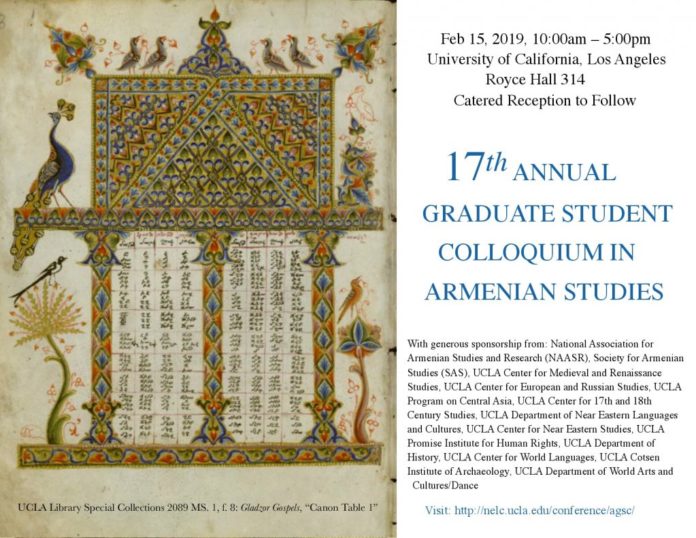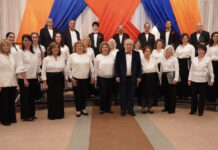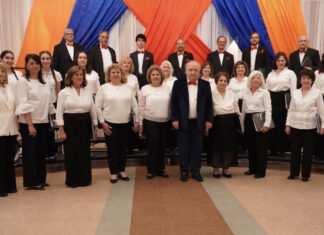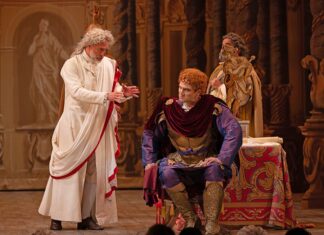LOS ANGELES — The Armenian Graduate Student Association of the University of California, Los Angeles (UCLA) will host its 17th Annual Graduate Student Colloquium in Armenian Studies on February 15 from 10 a.m. to 5 p.m. The event will be held at UCLA in Royce Hall 314 and will be followed by a catered reception.
For 17 years, the UCLA Graduate Student Colloquium in Armenian Studies has dedicated itself to encouraging, fostering, and promoting scholarly research among graduate students in the field of Armenian studies around the world.
This year features presentations by 10 young scholars from the United States, France, China and Armenia on a variety of topics centered around the following themes: the role of literature and the press in culture and identity formation; late antique religious art; early modern circulation of art and ideas between Europe and the Near East; and contemporary sociopolitical movements.
“We are delighted to welcome stellar young scholars in the field of Armenian studies and to give them an opportunity to present their cutting-edge research, receive feedback, and network with their peers and the faculty at UCLA. This year, we are also pleased to welcome Dr. Sebouh David Aslanian, who will be our guest speaker at the event,” said Jennifer Manoukian, director of the 2019 UCLA Graduate Student Colloquium in Armenian Studies.
Among the speakers will be Dr. S. Peter Cowe, Narekatsi Professor of Armenian Studies, Near Eastern Languages and Cultures, UCLA; Aram Ghoogasian, “The 1862 Zeytun Rebellion and the Armenian Press” (University of Chicago); Deanna Cachoian-Schanz, “Dare (Again) Not to Speak its Name? Translating ‘Race’ into Early 20th century Western Armenian Feminist Texts” (University of Pennsylvania); Khoren Grigoryan, “The Transformation of Collective Identity after 1915: The Case of Musa Dagh” (Institute of Archaeology and Ethnography, Yerevan); Sipana Tchakerian, “Stone Crosses before Khachkars: Early Christian Four-Sided Stelae from Armenia and Georgia” (Université Paris 1 Panthéon-Sorbonne); Ani Yenokyan, “Illustrations in Armenian Printed Books in the Context of Early Modern Armenian Culture: Printed Woodcuts and Armenian Miniatures” (Matenadaran Institute of Ancient Manuscripts); Sargis Baldaryan, “An Armenian Trade Manual in Circulation: Constant of Julfa, His Compendium and the Dissemination of Information in the Julfan Trade Network” (Yerevan State University); Xi Yang, “How to Measure Sayat Nova’s Aesthetic and Poetic Achievement” (Chinese Academy of Social Sciences, Beijing); Armen Adamian, “The Azgagrakan Movement: An Embodied Form of Armenian Nationalism” (UCLA); Stefanie Kundakjian, “Homemakings and Unmakings: Syrian-Armenian Women Integrating in the Homeland” (American University of Paris); Gevorg Petrosyan, “‘New Awakening’: Gezi Park and the Transformation of Armenian Youth Activism in Turkey” (Institute of Oriental Studies, Yerevan) and Dr. Sebouh Aslanian.
The colloquium is free and open to the public and will be live-streamed on the colloquium’s Facebook page (https://bit.ly/2HnVBWu).








